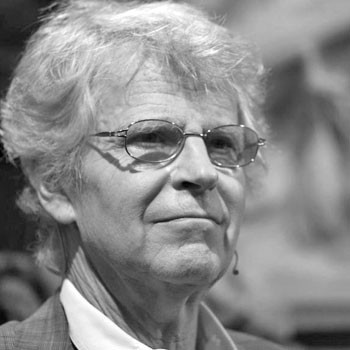
FrederikPolak, PhD
psychiatrist
- member of The Netherlands Drug Policy
- Foundation and VOC,
- Amsterdam, The Netherlands
One of the most experienced and respected Dutch psychiatrists in the field of drug use, Frederik Polak worked as a consultant-psychiatrist at the Drug Department of the Community Health Services (GGD) for thirteen years (1994-2003) and is one of the most authoritative voices in the social and political debate on drug policy, in the Netherlands and beyond.
From 2009-2013 Frederik was president of ENCOD (European Coalition for Just and Effective Drug Policies). He is member of the board of The Netherlands Drug Policy Foundation (Stichting Drugsbeleid), Association for the Repeal of Cannabisprohibition (VOC – Vereniging voor Opheffing van het Cannabisverbod).
He has written and co-authored numerous articles and reports including Drugsbeheersing door Legalisatie (Drug Management through Legalisation), Thinking About Drug Law Reform: Some Political Dynamics of Medicalization, and American Criticism of Dutch Drug Policy Unfounded.
Lectures and workshops on our seminars
| 2014 | Regulation of Marijuana Markets and the Fate of Drug Prohibition | Abstract |
|
The lecture will be mostly about cannabis and its situation in the Netherlands and globally, and focus on a few topics in which other drugs will be addressed also. About factors that may hinder health professionals to make optimal use of medicinal cannabis in their daily work. And more generally, about the problematic adoption of medicinal cannabis in many countries by health professionals, both those who prescribe cannabis and those who don’t. At the global drug summit UNGASS 2016 for the first time the system of prohibition itself will be discussed. The consensus was that this debate was not necessary. In plain view of the disastrous results of the war on drugs, a few prohibitionists are starting to understand that they should no longer keep to their policy of refusing to discuss regulation, because that attitude will accelerate the irrelevantization of the international drug conventions. Shortly before the CND took place in March 2014, the UN drug office, UNODC, published contradictory statements, some of which were retracted from the website in a few days. It seems they are expecting, and preparing for a serious attack on prohibition during UNGASS 2016. This initiative is starting in Latin America, with more sympathy than support from a few mostly European countries. The author’s view is that we find ourselves in the beginning of the transition to a world with very different regulatory systems for drugs. A growing number of countries is contemplating complete or partial legal regulation of cannabis, and even of all presently criminalized drugs. How must all those drugs be regulated? A number of studies have been published already, with differing views. What we hear from Uruguay, Colorado and Washington State is often difficult to interpret. In the USA there is a tendency to overregulate and install high taxes, while a commercial system is developing. Must every drug be regulated individually? Or can groups of drugs be distinguished for which one general regulation will do? The complexity of these questions seems formidable, and I posit therefore that it makes sense to start considering regulatory systems from a general perspective. Regulation cannot be global, it can only be national, or regional, as a result of cooperation between groups of countries that achieved a sufficient degree of consensus on the objectives of the regulation. |
||